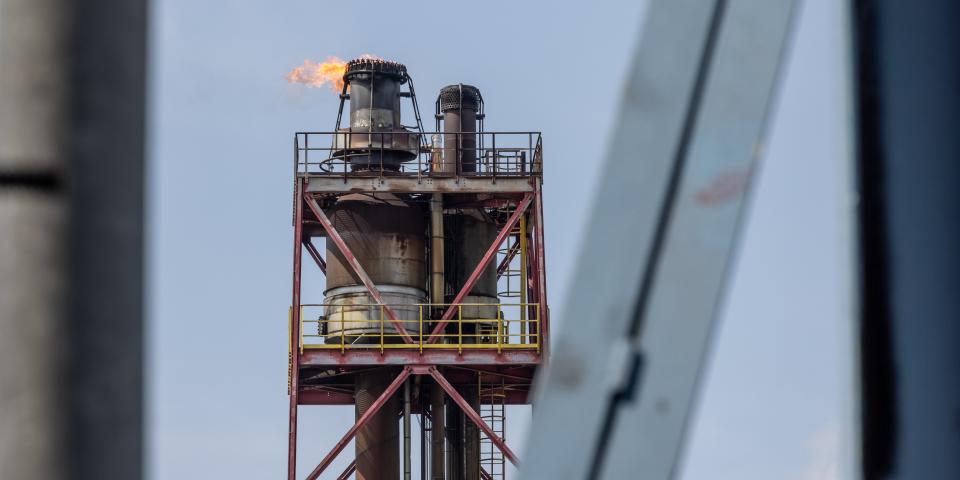US oil production will keep booming in 2024, setting up a possible showdown with Saudi Arabia

US oil production is expected to keep booming in 2024, possibly hitting a fresh high of 13.3 million barrels a day.
That comes as Exxon Mobil and Chevron are boosting their capital expenditure budgets for 2024.
More US supply could put further pressure on Saudi Arabia to regain contol over crude prices.
US oil production is having a blockbuster year, and 2024 could see fresh highs, putting more pressure on Saudi Arabia to regain control over crude prices.
Analysts at Rapidan Energy estimate US output will average 13.3 million barrels a day next year, up from 2023's average of 13 million and above the current all-time record of 13.2 million reached in September.
That comes as US oil giants Exxon Mobil and Chevron recently announced increases in their capital expenditure budgets for 2024 as they pour more money into the Permian Basin, the epicenter of the shale boom.
The record supply of US oil has coincided with output cuts from OPEC+ nations like Saudi Arabia and Russia, which have been struggling to lift oil prices.
That's got some experts warning that the Saudis may reverse course and instead flush the oil market with a flood of supply like they did in 2014, when Riyadh sought to drive out US producers from the market by sinking prices and making output less profitable.
Other analysts have echoed that view, as Doug King, chief investment officer of the Merchant Commodity Fund, told Bloomberg that "OPEC's strategy looks fragile" and a more "logical plan" would include unleashing a flood of supply to depress prices again.
For its part, Rapidan Energy doesn't see it that way.
"Currently we do not expect OPEC+ will flood the market to stifle US shale growth," Bob McNally, president of Rapidan Energy, wrote in an email to the Business Insider. "Ministers remain optimistic that supply-demand fundamentals will be together than many traders expect, helping to support prices."
Even so, the roaring growth in US oil is undeniable. In addition to their increased spending, Exxon and Chevron have announced mega-mergers this year to buy top shale producers.
"The Permian is going to be the engine of growth not only this year, but in years going forward," Hunter Kornfeind, an oil analyst at Rapidan, said in an interview.
Shifting tides
While the amped budgets of the energy behemoths highlight the surge in US oil production, they are also a sign of the shifting landscape in the American energy industry.
Growth is not as high compared to prior cycles, when oil companies would reinvest about 100% of the cash they generated into capital expenditures to drill more oil, Kornfeind said. Now, the amount they spend is about 40% to 50% of the money they make.
That reflects a change in the priorities of US oil companies as they focus more on shareholders returns through buybacks and dividends.
Meanwhile, US shale production — which Saudi Arabia targeted in 2014 — isn't the main risk facing OPEC over the longer term, McNally said.
"OPEC is more concerned about inadequate investment in supply than too much shale," he said. "It's important to note that OPEC does not share the IEA's peak demand view and therefore thinks shale oil growth is less of a threat."
Read the original article on Business Insider

 Yahoo Finance
Yahoo Finance 